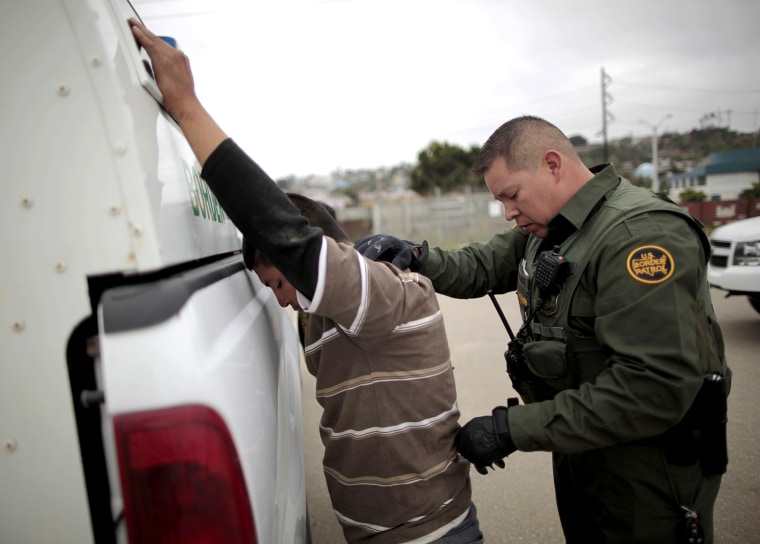In just a few weeks, President Obama's administration will hit the two-million mark in deportations. During his time in office, we’ve also seen a massive expansion of the number of people detained in immigration jails, to more than 400,000 a year.
The impact of this increased enforcement has fueled the drive towards comprehensive immigration reform, which the president said Thursday he expects the House to take up again after considerable movement in the Senate last summer. Unfortunately, for the detention system, immigration reform won’t mean much.
Currently, the detention system is run on a quota that requires at least 34,000 immigrants be detained daily. This quota mandated by the Congressional Appropriations committee each year will mean that even if immigration reform results in relief for some of the 11 million undocumented immigrants living in the U.S., many will still be targeted to fill immigration jail beds.
When people are detained they are taken from their families and communities. Local economies are impacted and families often lose their chief breadwinner. When someone isn’t there to support children of those detained, they are often shipped off to the foster care system. Policies like the detention bed quota effectively force immigration and local police to find people that are deportable in order to make sure beds are filled.
With a network of more than 250 jails and detention centers operated by federal, state, and local government, as well as by private industry, the system exacts a grim toll on immigrant communities (emotional, physical and financial) at the taxpayers’ expense, (more than $2 billion was spent on immigration detention in fiscal year 2012). Immigrants in detention are often denied basic needs, such as adequate food and hygiene, and access to fresh air and sunlight and many are subjected to solitary confinement.
To exacerbate the issue, immigrants in detention have no access to counsel, meaning that more than 80% end up representing themselves in immigration court. During the shutdown, this was even more intensified due the furloughing of legal orientation programs that educate immigrants about their legal options. Beyond that, the ever-expanding immigration case backlog was most likely affected with several courts closed during the shutdown. The repercussions of the shutdown are still unclear, but there is not doubt that immigrants in detention were affected.
Not surprisingly, detaining immigrants has become good business. Prison corporations lobby heavily to secure these government contracts to increase their profits in a billion-dollar industry, while county jails benefit by using money earned from detaining immigrants to fill gaps in their shrinking budgets. Of the 34,000 detention beds, 50% are operated by private prison companies, such as Corrections Corporation of America (CCA) and the GEO Group.
Immigration and Customs Enforcement (ICE) has yet to codify standards for detention, meaning there are basically no rules to how people are held. More than 132 deaths have occurred in detention since 2003--many of which could have been prevented with proper medical attention or mental health services. The case of Roberto Martinez Medina is sadly exemplary. Medina, who was held at the CCA operated Stewart Detention Center in Columbus, GA, was a 39-year-old Mexican national who died of a heart infection after three days of requesting medical attention for a treatable condition. In May, two Guatemalan nationals committed suicide within one week of each other at Eloy Detention Center, another CCA facility in Arizona.
Until the quota is eliminated, tens of thousands of people continue to be torn from their families, communities, and livelihoods and swept up into detention facilities where they are locked in prison cells, waiting indefinitely in subhuman conditions for their cases to be decided. Time is of the essence.
Silky Shah is the Interim Executive Director of the Detention Watch Network.
